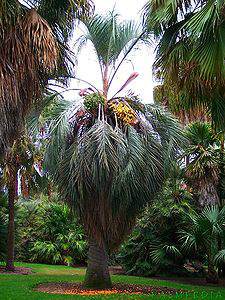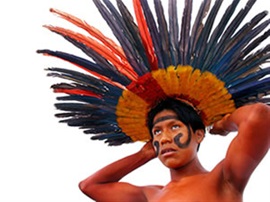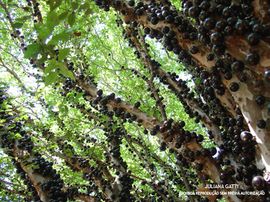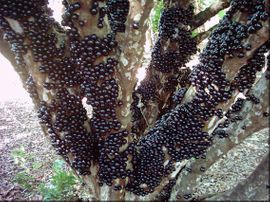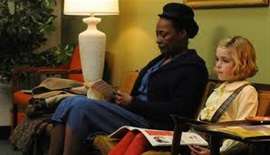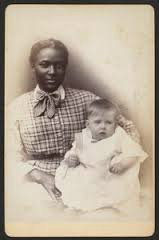Em construcao
Creatividade, inovacao e cultura.
The Ministry of Culture of Brazil sees the book PINDORAMA, the History of Brazilians of national interest, and as such will be financing its publication!
Synopsis of Pindorama:
“In her history of the Brazilian people, the British-Brazilian author A.L.P. Gouthier challenges the Portuguese version of history, and takes her tale back from European discovery in the 1500 AD to 45 000 BP, or the time of the first human incursions into the southern continent.”
Anglo-Brazilian Cultural interests
Trecho da Vida de Anastasia
Pretendente:
Eu sou um desajuste e levei uma vida inteira para aceitar isso.
Eu nem sequer
a compreendi este fato até muito tarde na minha vida.
Eu sempre desejei ser uma pessoa normal e quando eu finalmente entendi a realidade com a qual eu era vista por estranhos eu comecei a
fingir que nao entendia.
Eu tinha que me distanciar da imagem falsa que criaram.
Esta é a única maneira que eu sei ser.
Passage from Anastasia's Life
Pretenders:
I am a misfit and have taken a whole lifetime to accept this.
I did not even to understand this fact until so late in my life.
I always craved to be a normal person and when I finally understood the way others thought about me I started to pretend not to understand.
I had to distance myself from this awful image they created.
This is the only way I know how to be.
Prologue: Anastasia's Life
Prefiro ser odiada pelo que sou do que amada pelo o que nao sou.
I have been resisting the pull of so many people, though such a long time to rewrite the story of my life to something they imagined. Nevertheless, I refuse to change a single day of my true-life story.
Why are they so insistent, why do they think I have reason to lie? So much anger and so much aggression I have felt against me and I find it difficult to comprehend why I deserve it.
This explains my distancing from this world of antagonism to one of calm, aloof but protected.
Prologo da Vida de Anastásia
Eu tenho resistido contra a pressão de tantas pessoas, atravez de tanto tempo, para reeditar a história da minha vida de acordo com algo que eles imaginaram que ela foi. No entanto, eu me recuso a
mudar um único dia da minha história da vida real.
Por que eles sao tão insistentes, por que eles acham que eu tenho razão para mentir? Tanta raiva e tanta agressão
eu sinto contra mim, e nao sei por que mereço isso.
Esta é a explicacao de meu distanciamento deste mundo de antagonismo, para outro de calma, distante, mas protegido.
Prologo de Pindorama
Butia Capitala
O país que nós conhecemos como o Brasil já teve muitos nomes ao longo do tempo, mas infelizmente não consegui descobrir o que era chamado pelo povo Krenac, que viveram há cerca de 15 000 BC até hoje. Seus descendentes ainda vivem em várias partes do país, incluindo a bacia amazônica, o planalto central e oeste de Minas Gerais, que é de onde eu venho. A maioria dessas pessoas, no entanto, já não falam a sua língua materna por circunstâncias os forçaram a aprender Português. O restante vive em áreas bastante isoladas e temos pouco contato com eles. E em cerca de 3 000 BC, as tribos Tupi fizeram as suas incursões ao interior do país e felizmente Tupi moderno ainda é falado em vários países da América do Sul. Eles nomearam sua terra, agora nossa terra, Pindorama. No ano de 1500 AD, quando o Português invadiu os novos territórios passou por uma série de novos nomes como, Ilha de Vera Cruz, que muito rapidamente mudou, também em 1500, para a Terra de Vera Cruz quando realizaram seu grande erro - que não era exatamente uma ilha. Mas de volta à Europa muitos se referiam às descobertas como a Terra dos Papagaios.
Cinquenta anos mais tarde, após a posse de Fernando de Noronha como arrendatário para a exploração de madeira, os europeus mudaram lentamente sua nomeação pela origem de tal riqueza vegetal para a terra do Pau-Brasil, por isso, no tempo do primeiro Governo Geral chefiado por Tomé de Souza, a colônia do sul tinha-se tornado a Terra do Brasil.
Em linguística étnica, endonimos e exonimos são os nomes de habitats dado por seus grupos étnicos ou por forasteiros. Assim, a terra do Brasil foi um exonimo, e Pindorama foi um endonimo do gigante continental.
Pindorama permaneceu o endonimo do país para uma grande parcela da população de sangue indígena e misturado até pelo menos os anos 1750, quando Pombal, Ministro Português, decidiu que Tupi não poderia mais ser usado em escolas e que seria permitido apenas Português.
O nome da Pindo-rama nos leva a pensar de seus componentes. Rama ou Ram é o sétimo avatar do Deus Vishnu no hinduísmo, e do rei de Ayodhya nas escrituras dos hindus. Junto com Krishna, o oitavo avatar, Rama é considerado um dos avatares mais significativos Vishnu que em poucas seitas Rama-centradas, é considerado o Ser Supremo, em vez de um avatar.
Antes de analisar 'Pindo' vamos dar uma olhada na palavra panorama, para uma origem adicional para Ram ou Pan. Este termo é formado a partir de 'πᾶν' em grego, significando 'tudo' + 'ὅραμα' para 'visão', e também significa uma visão grande-angular ou representação de um espaço físico. A palavra foi originalmente cunhada no século 18 pelo pintor irlandês Robert Barker para descrever suas pinturas panorâmicas de Edimburgo e Londres. Na fotografia panorâmica refere-se à rotação horizontal de uma câmera fotográfica, e câmeras de vídeo pan-girando horizontalmente sobre um eixo vertical. Como conclusão 'rama', além de ser uma divindade hindu, também poderia implicar visão ampla, tudo se vê nas grandes extensões de terra, ou poderia se referir à divindade de todo o mundo.
Enquanto isso, o Pindo, o butiazeiro, é uma planta durável e resistente que suporta grandes variedades de temperatura, de mais de 50 a menos 10 graus centígrados. O tronco pesado é protegido por uma cobertura de folhas rodeado por espinhos, de uma quantidade igual de ambos os lados de cada fronde. Pode ser facilmente reconhecida por sua copa arredondada de verde escuro e folhas graciosas que se curvam ao vento forte. No verão, oferece alimento com a aparição de cachos pesados de fruta amarela do tamanho de jabuticabas. Essa palmeira tem crescimento muito lento e chega até quatro ou mais metros de altura, e tem evoluído para resistir e sobreviver. Muitas vezes, cercado por outros tipos de palmeiras, tem o nome botânico do Butia Capitale, da família Arecaceae. "Butiá" é uma corrupção Português de um termo indígena que significa espinhoso ou espetado, e 'Capitata' é uma palavra latina que significa 'com uma cabeça densa’ referindo-se aos cabeças de sementes dentro do fruto. Por último, Pindo é também o nome de uma cidade no sul do Brasil, que é cercada por Pindo palmas. O seu habitat original foi sempre foram as pastagens, florestas secas e savanas da América do Sul. O sabor do fruto pode variar dependendo das condições do solo, mas é algo como uma mistura de abacaxi, nectarina ou banana com um toque picante a ele, mas também é muito fibroso e resistente para comer e não é muito divertido para as crianças locais que em breve preferem deixá-los para os macacos, pássaros e cobras. O fruto Pindo, chamado localmente de "coquinho" contém uma boa quantidade de pectina, o que o faz produzir um licor turvo, mas também é usado para fazer sobremesas e doces. Algumas pessoas podem engolir a fibra sem problemas, mas outros podem não se saem tão bem. A regra para os nativos é, como sempre, nunca comer muito de qualquer coisa ou você pagará por isso em breve. Então mastigar da fruta e cuspir a fibra é uma prática aceita, como, aliás, é para o nossa muito amada Jabuticaba. O núcleo do coquinho Pindo também é comestível para os seres humanos e animais, mas se alguma vez mastigados ou rachados não devem ser cuspido na vizinhança de uma palma ou vai mata-la. As maravilhas da natureza ... A.L.P. Gouthier,
Prologue of 'PINDORAMA'
The country that we know as Brazil has had many names through time, but unfortunately I could not find out what it was called by the Krenac people, who have lived there from approximately 15 000 BC until today. Their descendants still live in various parts of the country including the Amazon basin, the central plateau, and western Minas Gerais, which is where I come from. Most of these people, however, no longer speak their mother tongue, circumstances having forced them to learn Portuguese. The rest live in fairly isolated areas and we have little contact with them.
In approximately 3 000 BC, the Tupi tribes made their incursions inland, and fortunately modern Tupi is still spoken in a number of nations of South America. They named their land, now our land, Pindorama. In the year 1500 AD, when the Portuguese invaded, the new territories went through a series of new names such as, Island of Vera Cruz, very quickly changed, also in 1500, to Land of the True Cross, when they realized their huge mistake - that it was not exactly an island. But back in Europe many referred to the discoveries as the Land of Parrots.
Fifty years later, after Fernando de Noronha’s tenure as leaseholder for the exploration of brazil-wood, Europeans slowly changed their naming of the origin of such vegetable wealth to The Land of Brazil Wood, so by the time of the first General Government headed by Tome de Souza, the southern colony had become the Land of Brazil.
In ethno linguistics, endonyms and exonyms are the names of ethnic groups and their habitats, as identified respectively by the group itself and by outsiders. So the land of Brazil was an exonym, and Pindorama was an endonyn of the continental giant.
Pindorama remained the endonym of the country to a large portion of the population of indigenous and mixed blood until at least the 1750s, when Pombal, a Portuguese Minister, decided that Tupi could no longer be used in schools and that only Portuguese was permitted.
The name Pindo-rama leads us to think of its components. Rama or Ram is the seventh avatar of the God Vishnu in Hinduism, and of the king of Ayodhya in the Hindu scriptures. Along with Krishna, the eighth avatar, Rama is considered one of the most significant Vishnu avatars who in a few Rama-centric sects, is considered the Supreme Being rather than an avatar.
Before we analyse ‘Pindo’ we will take a look at the word panorama, for an additional origin for Ram or Pan. This term is formed from the Greek ‘πᾶν’ – ‘all’ + ‘ὅραμα’ - ‘sight’, and it means a wide -angle view or representation of a physical space. The word was originally coined in the 18th century by the Irish painter Robert Barker to describe his panoramic paintings of Edinburgh and London. In photography panning refers to the horizontal rotation of a still camera, and video cameras pan by turning horizontally on a vertical axis. As a conclusion ‘rama’, apart from being a Hindu deity, could also imply wide sight, all seeing, or again, large expanses of land, or it could refer to the divinity of the entire world.
Meanwhile, the pindo palm, jelly or wine palm, is a hardy and sturdy plant that will tolerate all temperatures from plus 50 to minus 10 degrees centigrade. Its heavy trunk is protected by a leafy cover surrounded by spines, of an equal quantity on both sides of each frond. It may easily be recognized by its rounded canopy of dark green, graceful leaves bowing to a strong wind. In summer it offers nourishment with its display of heavy clusters of yellow fruit the sizeof dates. This very slow growing plant will reach four or more meters in height, and it has evolved to endure and survive. Often surrounded by other types of palms, it has the botanical name of the Butia Capitale, of the Arecaceae family. ‘Butia’ is a Portuguese corruption of an aboriginal term meaning spiny or spiky, and ‘Capitata’ is a Latin word for ‘with a dense head’ referring to the seed heads inside the fruit. Lastly, Pindo is also the name of a town in southern Brazil, which is encircled by Pindo palms. Their original habitat were always the grasslands, dry woodlands and savannahs of South America.
The taste of the fruit may vary depending on soil conditions, but it is something like a mixture of pineapple, nectarine or banana with a tangy touch to it, but it is also very fibrous and tough to eat and not much fun for the local children who soon give up on it and leave it to the monkeys, birds and snakes. The pindo fruit, called locally ‘coquinho’ or little coconut, contains a good amount of pectin, which makes a cloudy wine or spirit, but it is also used to make desserts and jams. Some people can swallow the fibre without problem, but others may not fare so well. The rule for natives is, as usual, never eat too much of anything or you will pay for it soon enough. So chewing the fruit and spitting out the fibre is accepted practice, as indeed it is for our much loved, all Pindoramean Jabuticaba. The core of the pindo coconut is also edible to humans and animals but if ever chewed or cracked it must not be spat out in the vicinity of a palm or it will kill it. The wonders of nature…
A.L.P. Gouthier
Trecho em livro Pindorama
Luciana de Krenac
Trecho do livro Pindorama a ser publicado na Inglaterra em 2014:
Como vou relatar em maior detalhe mais adiante eu tinha mais ou menos treze anos quando
eu vi pela primeira vez o nome da 'Luciana de Krenac'. Ela era um ancestral do lado do meu pai. Seu nome apareceu em uma certidão do nascimento de Maria Domingas que eu entendi era o meu avô uma irmã de meu avô Totônio. O documento
que colocou essa Luciana na primeira metade do século 19, e ela provavelmente nasceu cerca de 1825. O nome me chamou a atenção porque o nome de Luciano tornou-se um sobrenome do meio na minha família. Na época não
havia muito mais que eu poderia encontrar sobre ela especificamente. Era uma certidão de nascimento de uma neta dela e notei que o sobrenome do marido da Luciana era Pereira de Azevedo, e seu filho, o pai da criança em questão foi chamado:
Joao Luciano Pereira. Percebi que João era o meu bisavô, e estava realmente intrigada com o sobrenome Azevedo, sendo esta a primeira vez que eu tinha ouvido falar de tal sobrenome ligado a um homem na nossa linha direta de ascendência meramente
de 150 anos atrás. Percebi que esse sobrenome teria simplesmente sido descartado. Mas eu queria saber o porquê.
Mais de trinta anos se passaram e em uma tarde de domingo no final de 1990
após a morte de meu pai, eu estava almoçando na casa de meu irmão quando seu filho mencionou um telefonema recente. O interlocutor queria falar com meu irmão, que estava fora, e perguntou se tinha o meu irmão tinha recebido
uma carta que ele havia enviado. Meu irmão então disse: 'Que carta que foi essa?' Sua filha respondeu: ‘Há uma carta aqui que você não tenha visto ainda. ’ Deixe-me ver’ disse ele. Ele abriu-a e leu-o rapidamente,
e então disse a seu filho, ‘E o que você disse a este homem no telefone?’
Meu sobrinho disse: 'Oh, eu estava com tanta pressa para sair quando eu respondi a sua chamada que
eu era realmente muito abrupto e pouco paciente com ele. ’ Meu irmão respondeu, ‘Não há necessidade de ser rude com um estranho. E porque você foi assim eu vou telefonar para ele de volta agora e pedir desculpas por seus
maus modos. A julgar pela sua carta que ele parece ser um muito educado. ’
Na carta que o homem tinha escrito que seu nome era Augusto Luciano Pereira, que tinha mais de oitenta anos de idade,
e que ele era um parente distante do nosso lado do nosso pai. Depois que meu irmão falou com ele ao telefone e respondeu a algumas perguntas que ele tinha sobre o nosso ramo da família, informando-lhe que ele tinha duas irmãs e dois filhos
eles terminaram a conversa amigavelmente.
Então eu disse ao meu irmão: 'Dê-me a carta e vou entrar em contato com ele, como ele parece ter o mesmo interesse em árvores genealógicas
que eu tenho. ‘ E foi assim que o Sr. Augusto e eu começamos a trocar cartas que levaram à minha descoberta sobre a origem indígena da mulher que eu vou citar aqui como Luciana de Krenac, que foi, provavelmente, um Tapuyana, Aymoré
ou Botocuda.
Exerpt from Pindorama
Exerpt from book Pindorama, being published in England in 2014:
As I will relate in more detail later, I was about thirteen when I first saw the name ‘Luciana’. She was an ancestor on my father’s side. Her name appeared on a birth certificate of Maria Domingas who I worked out that she was my grandfather Totônio’s sister. The document that placed this Luciana in the first half of the 19th century, probably born about 1825! The name attracted my attention because the name Luciano has become a middle surname in my family. At the time there was not much else I could find about her specifically. It was a birth certificate of a granddaughter of hers and I noticed that her husband’s surname was Pereira de Azevedo, and her son, the father of the child in question was called: Joao Luciano Pereira. I realized that Joao was my great-grandfather, and was really puzzled by the surname Azevedo, this being the first time I had heard of such a family name belonging to a man in our direct line of ancestry merely 150 years ago. I realised that last-name had simply been dropped. But I wondered why.
More than thirty years passed and on a Sunday afternoon in the late 1990s after my parent’s death I was having lunch at my brother’s house when his son mentioned a recent phone call. The caller had wanted to speak to my brother who was out and had enquired whether my brother had received a letter he had sent. My brother said, ‘What letter was that?’
His daughter answered, ‘There is a letter here for you that you have not seen yet.’ ‘Let me see it,’ he said: He opened it and scanned it quickly, and then told his son, ‘And what did you say to this man on the phone?’
My nephew said: ‘Oh I was in such a hurry to go out when I answered his call that I was really rather abrupt and did was not very patient with him.
My brother retorted, ‘There’s no need to be rude to a stranger. And because you were so I will phone him back right now and apologise for your bad manners. Judging by his letter he seems to be a very polite.
In the letter the man had written that his name was Augusto Luciano Pereira, that he was over eighty years old and that he was a distant relation of ours on our father’s side. After my brother spoke to him on the telephone and answered some questions he had about our branch of the family, informing him that he had two sisters and two children of his own they finished the conversation amiably.
I then said to my brother, ‘Give me the letter and I will get in touch with him as he appears to have the same interest in family trees that I have. And this was how Senhor Augusto and I started exchanging letters that led to my finding out about the indigenous origin of the woman I will name here as Luciana de Krenac, who was probably a Tapuyana, Aymore or Botocuda.
Pindorama, & the History of Brazilians
Sugar-cane plantation
Exerpt from the Pindorama and the History of Braziians, by ALP Gouthier
It is theorized that sugarcane was first domesticated as a crop in New Guinea before 6000 BC, where farmers and other early cultivators of chewed the plant for its sweet juice and used to feed the pigs that abound in the area. After all these where the very people who island hopped westwards into the Pacific until they reached the southern tip of south America, and later trekked north all the way to the Pindoramean state of Maranhão, following the rivers that cross the whole country long from south to north. In the south we have the Parana River and as of Minas Gerais the Paranagua follows on. The word “Para” in the Tupi language itself means a great expanse of water.
Book launching on the second semester of 2014
Historia de1946: Jabuticaba; Abr 2014
Pé de jabuticaba
Há uma memória minha de uma ocasião que aconteceu durante uma grande reunião de família, que é um pouco intrigante. Eu me lembro que eu estava sendo carregada
no colo por minha mãe, parte do tempo , em um lugar que tinha muitas árvores; havia muitos primos e tios presentes , e eu acho que tinhamos ido lá para chupar jabuticaba .
Comer
jabuticaba de uma árvore é um deleite e uma oportunidade de faze-lo nunca é perdida por qualquer pessoa que já teve o prazer de fazê-lo antes. Deve ser ainda melhor do que comer cerejas de uma árvore. E isso é
porque , além de ser divertido é delicioso, e é uma árvore particularmente fácil de subir. Seus ramos se divididem e subdividam a partir de muito baixo para cima, desde o chao até os galhos mais altos. Uma pessoa pode
escalá-la muito rapidamente e depois ficar pendurada lá, protegida por todos aqueles pequenos ramos a comer a fruta bonita, tudo só para você. Para comer voce tem que morder cada uma delas, quando há um agradável som
de "plop" , e ai voce tem que engolir o caldo e cuspir a semente e a casca negra. As crianças geralmente são informadas de que não se deve engolir a semente, porque sinão uma árvore vai crescer dentro de você, mas mesmo
que o medo disso não impede que se engola algumas, no meio de toda a diversão.
Árvores de Jabutica, aparentemente só crescem nativamente no Brasil, e florescem na estação chuvosa, geralmente a partir de novembro, pouco antes do verão do sul. Dizem que essas árvores crescem muito lentamente, de modo que um pomar de muitas árvores adultas, como as desse lugar do qual eu me lembro, que provavelmente tinham de vinte até cem anos de idade. E assim, a maioria das pessoas nunca perdia uma ocasião, como a que nos tivemos, de ir a um horto desses que eu tinha a certeza que era propriedade de meu pai. Eu já tinha aprendido, desde cedo, que muitas coisas pertenciam ao meu pai! Ele tinha tambem um escritório grande, com muita gente, e muitos lugares para nós irmos ao campo, com o nosso próprio lago e búfalos e plantações de cana, no meio da qual nós andavamos de jipe; ele até voava seu pequeno avião quando iamos para fora da cidade. Ele me deixava dirigir o avião, e só a minha mãe não gostava disso. Eu ficava tão orgulhosa dele e ele era louco por mim. Enfim, eu me lembro daquele dia, depois de muito comer e escalar arvores, quando estávamos quase na hora de entrar nos carros para ir para casa, chega o meu pai tardiamente. Todos os cumprimentam-o e ele conversa com todos, e me pega no colo toda contente. Por minha reação aos acontecimentos, deduzo que eu devia ter uns dois ou três anos de idade. De qualquer forma, eu estava muito feliz até quando vi o carro do meu pai tinha trazido. Era um daqueles modelos Ford T dos anos 1920, que estava causando exclamação de surpresa entre todos os presentes. Eu devo ter pensado que era um carro muito estranho, talvez apenas velho, que logo comecei a chorar. Papai olhou para mim sem entender e eu quiz voltar para o colo de minha mãe dizendo não queria andar nesse carro, porque ele era muito feio. Meu pai parecia absolutamente perplexo com o meu desabafo, mas deixou-me voltar para casa com a minha mãe em nosso outro carro. Eu suponho, eu pensei que meu pai nao devia andar de carro velho e esse nao alcansou as minhas expectativas. Quando eu penso sobre isso hoje em dia eu acho que é uma pena que eu nunca vi esse carro velho novamente.
1946 Story: Jabuticaba. Apr.2014
A Jabuticaba Tree
There is a memory of mine of an occasion that happened during an extended family gathering, which is a bit puzzling. I remember that I was being carried about by my mother, some of the time, at a place that had many trees; there were lots of cousins and uncles present, and I think we had gone there to pick and eat Jabuticaba.
To eat jabuticaba off a tree is a treat and an opportunity never missed by anyone who has ever had the pleasure of doing it before. It must be even better than eating cherries off a tree. And this is because, apart from being beautiful and delicious to eat, it is a tree which is particularly easy to climb. Its branches divide and sub-divide from low down, next to the ground, all of the way up. One can climb it, very quickly; up to the high branches and then hang from there, safely protected by all of those little branches, eating the pretty fruit, all about you. As you bite, each one of them, there is a pleasant “plop” sound, and one is supposed to swallow the juice, spit the seed into the black skin in your hand. Children are usually told that one must not swallow the seed or else a tree will grow inside of you, but even that fear fails stop you from swallowing a few, in the midst of all of the fun.
Jabutica trees, apparently only grow natively in Brazil, and they bloom in the rainy season, usually starting in November, just before the southern summer sets in. It is said that the trees grow very slowly, so an orchard of many adult trees, such was the place that I recall, is likely to have specimens from twenty to as much as one hundred years old. So, most people would never miss an occasion, such as the one we went to, go to that orchard that was sure to be owned by my father. I had already learned, very early on, that a lot of things belonged to my father. He had a nice large office, with a lot of people, and many places for us to go to in the country, with our own lake and buffalos and cane plantations, through which we rode by jeep; he even flew a little plane, in which we went to the country. He let me drive the plane, even though my mother did not like it. I was so proud of him and he was mad about me.
Anyway, I remember that day, after a lot of eating and climbing, when we all were about to go into our cars to go home, my father shows up, belatedly. Every one greets him and he chats with everyone, and picks me up and carries me about. By my reaction to the events, I deduce that I must have been two or three years old then? Anyway, I was very happy until I saw the car my father had brought. It was one of those 1920’s Ford model T, which was causing exclamation of surprise among everyone present. I must have thought it was very strange, maybe just an old car, so immediately I started crying, to every one’s surprise, grabbed my mother’s neck saying that I did not want to ride in that car because it was very ugly. My father looked absolutely bewildered with my outburst, but let me go back home with my mother in our other car. I suppose, I thought that he could not even have a car I did not like. So, that car, had not met up to my expectations. When I think about it nowadays, I think it is such a pity that I never saw that old car again.
Abril2014-Sonhos/A Vida de Anastasia 2
Bk 2 , 1970
Ontem à noite eu sonhei com Papai novamente e ele insistia comigo que eu tinha que ir trabalhar no negócio da família e eu estava apavorada. Recusei-me a ir e ele estava muito bravo comigo . Sempre que eu imaginava todas as pessoas com quem eu não queria conviver ou até mesmo ver ou com as quais trabalhar, que provavelmente estariam lá, ou iriam lá, eu me arrepiava. Eu estava desesperada para evitar o contato com pessoas que pertenciam à outra vida de meu pai. Eu sempre pensei que eles tinham segredos que eu não gostaria de saber! Eles também tendiam a olhar para mim como se eu fosse uma curiosidade, talvez tentando ler a pessoa que sou. Isso me assustava! Eu pensei que lá eu estaria muito exposta à observaçao e tinha também certeza de que, a maioria dessas pessoas não gostavam de mim mesmo sem nos conhecermos. Era melhor continuar assim, nós não tínhamos que nos tornarmos familiares. Eu não queria mudar a minha vida. A minha família era o que sempre havia sido e desta forma ela deveria continuar, para sempre. Trabalhar lá seria como viver em um ninho de víboras e era um lugar feio também.
Eu nem sei se eu estou falando agora sobre o sonho ou sobre a vida real pois os dois se misturam em minha mente.
Eu disse ao meu pai que eu queria trabalhar no banco e a razão para isso foi a ficar protegida contra os horrores do escritório principal. Papai me disse que eu não sabia nada sobre a operação bancária e não muito mais tarde vendeu o banco. Eu certamente não sabia muito sobre uma instituição financeira, mas de qualquer jeito, eu não sabia nada sobre o resto também. Eu tinha estudado a teoria geral de Administração de Empresas, mas não tinha prática de nada. Tudo teria que ser aprendido.
A feiura da sede da Fayal me perturbava muito. Eu não queria passar os meus dias lá, tentando fingir que nada estava errado. Suponho que eu nunca fui muito boa em fingir. A beleza estética de meu meio ambiente faz muita diferença para mim. Até hoje eu sou assim: estou feliz em um lugar belo, e deprimida em um lugar feio.
É muito ruim ser tão sensível, mas não consigo ser de outro modo. Uma frase que eu escrevo tem que ser elegante e perfeita, a minha roupa deve combinar ou misturar bem, quadros na parede são colocados numa ordem exata e distância entre um do outro para alcançar a melhor demonstração possível de simetria e encantamento.
Eu acho que é por isso que algumas pessoas da minha família pensaram que eu era estranha e ruim. A verdade é que eu sou uma perfeccionista de nascimento e não há nada de errado com isso. Eu gosto do modo que eu sou.
O meu pai nunca me entendeu, ou não quis entender. Em vez disso, ele disse que eu era arrogante e louca. A notícia se espalhou, dentro a família imediata, de que eu era uma pessoa muito ruim, e o meu irmão e minha irmã compraram esse raciocínio. Só a minha mãe e a minha prima Sandra nunca perderam a fé em mim e continuaram a me amar me ver como uma pessoa boa.
A.L.P.Gouthier
April2014-Dreams/Anastasia's Life Book 1
Bk 2, 1970
Last night I dreamt of Papa again and he was insisting with me that I had to go to work in the family business and I was terrified. I refused to go and he was very mad at me. Whenever I imagined all of the people whom I did not want to meet or even see, or to work with, that were likely to be there or go there I cringed. I was desperate to avoid anyone who was part of father’s other life.
I always thought that they had secrets that I would not want to know. They would also tend to look at me as a curiosity, trying to read the real person. This frightened me. I thought I would be exposed to too much scrutiny and I was sure that most of these people did not like me either even though we had never met. It was best to continue this way; we did not have to meet. I did not want to change my life. My family was what it had always been and this way it should continue, forever. Working there would be like living in a nest of vipers and an ugly one at that!
I do not even know if I am now talking about the dream or about real life as they mix up in my mind.
I told father that I wanted to work at the bank and the reason for this was to stay protected from the horrors of the main office. Father told me that I did not know anything about banking and not much later sold the bank. I certainly did not know much about a financial institution but then again I did not know anything about the rest either. I had studied the general theory of Business Administration but I had no practice in anything. Everything would have to be learned.
The ugliness of the head-office was disturbing too. I did not want to spend my days there, trying to pretend that nothing was amiss. I suppose that I was never a good pretender. Beauty and the aesthetic arrangement of things in my environment always made a lot of difference to me. To this day I am happy if I am at a place aesthetically beautiful and depressed in a place which is ugly.
It is really bad to be so sensitive but I cannot help it. A phrase that I write has to be elegant and perfect, my clothe must match or mix well, the paintings on the wall are placed at an exact order, and distance from each other, as to achieve the greatest possible display of symmetry and enchantment.
I think that is why some people in my family thought I was weird and evil. All I am is a perfectionist from birth and there is nothing wrong with it. I like what I am.
My father would never understand me or did not want to. Instead he said that I was arrogant and mad. The word spread out within my family that I was a very bad person and my brother and sister bought his reasoning. Only my mother and my cousin Sandra never lost faith in me and continued to love me.
A.L.P.Gouthier
Unheard alarm bells
~E em vez de me alimentar ele tocava uma campainha...
The telephone rung once, twice, three times and as I did not react Babi assumed that I had not heard it. What made me finally react to the sound was actually the expression in her face, and I said: Ah yes, the telephone, I will answer it; it must be the porter trying to tell us that Mariana has arrived.
My hearing deficiency had never been anything as bad as that, even without hearing aids, but I had not been able to cure my slow response to loud bells, or even tried really.
I then quickly explained to Babi: Ever since the years of persecution I have not lost my automatic lack of reaction to loud bells.
It had become a sort of reverse Pavlovian Conditioned Reflex. Or better, a lack of reflex really. Very useful to maintain my peace of mind, and actually developed just for that purpose.
I could easily look at the sonorous object without battering an eyelid and only be shaken out of my revelry when the black object, when it was black, just about jumped by the strength of its shrill.
Ah yes, the days of torment had not been that long ago, just around the corner, about ten or fifteen years ago. I had battled at two fronts at the same time, or had it been two wars? Yes, this is a more precise way to describe the ordeal that I lived through, and at the same time I was so happy at home because of my love for my children. Apart from them I was entirely alone. Almost completely isolated within my own borders, but I survived and thrived.
I refuse to accept defeat. If I cannot achieve something I will soon believe that I never really wished it, and come to think that the alternative obtained was really a much better choice. I believe that means that I am an optimist, and thank God for it.
A.L.P.Gouthier
BrazilianNews, TamaraOliveira, Março 2014
A escritora, poetisa e tradutora A.L.P. Gouthier: leve, serena e encantadora, como seus trabalhos literários.
“A Pindorama e a História
dos Brasileiros”
Este e o nome do livro que a poetisa,
escritora, tradutora A.L.P. Gouthier
estará lançando no segundo semestre
deste ano. Em abril de 2013 a
Escritora lançou um blog onde parte
de sua obra literária está à disposição
dos leitores, com uma marca de mais
de dezesseis mil acessos em menos de
um ano, A.L.P. Gouthier se consolida
como uma profissional das letras
que sabe seduzir e encantar os leitores
com suas palavras. Para conferir o
trabalho desta impar autora, visite o
endereco: www.anastasiapersephone.
com
“Se o meu mundo não muda eu mudo de mundo”,
A.L.P. Gouthier
London Brazilian News,
Week 25 to 31 March 2014
Strategy End March 2014
Conquering new worlds
Strategy
For a person that always made a point of avoiding the limelight I almost do not recognise myself but I am either becoming more courageous or less neurotic.
But since I decided to become a part time writer I have embraced my purpose, faced my fears and most of all I traced strategy.
The first step was to create Anastasia Persephone behind whom to hide, and this I did, with her Blog, which has had the most amazing success of almost 1500 visits a month. Secondly, I started working with my friend Mike Wade in the revision of the Pindorama. Through this process I collected his tit-bits of praise as jewels and support of my slowly growing confidence.
But at the same time the Blog was meant as a publicity campaign for A.L.P.Gouthier, and now I also have worked myself up to the press. So I send you herewith, to my collaborators in one way or another, a little clipping of news that just appeared in a London local paper, directed to Brazilians, called Brazilian News, and “Vive la difference!”
If news of me ever came out in the old home-ground it would have said something hateful as: “The daughter of god-knows-who or the owner of god-knows-what…” I was never allowed to be just myself.
I have not bothered to translate as most people are either multi-glots or at least Goggle savvy.
Continuing, as far as strategy is concerned, Pindorama, my first book in prose, is going to be published in the UK and in Brazil at the same time, hopefully on the second semester of this year. And after that I will use the impulse to launch Anastasia’s Trail, a Brazilian Odyssey, at least in Brazil. This is a bilingual work of poetry and by itself would have less impact.
Anna Gouthier
Snake on Verandah Column
Exerpt from Anastasia's Life Story -Snake
There is another story that Mama told me that is quite easy to place in time by the details in the tale. It happened, I am quite sure, in the winter, the middle of the year, of 1949.
Having been born and raised in the country, my father always had great respect for animals so if he ever came across a snake, in his regular weekend trips to the country for work, he would have it captured, crated and feed, and he would bring it in his own little plane, to be sent to the Butantan Institute, in Belo Horizonte, were it would be cared for. So apparently in one of these occasions, a large snake that my father had brought, which was going the next day to be collected by the people of the institute, escaped from its box, and wrapped itself up on one of the columns of our veranda. My mother told me that she was there, at night, alone with my brother, who was just a baby, and I, who at the time was ill, with a high temperature. Consequently, she said, she would not have dared take us out as it was cold outside, and she was afraid the snake could find a way into the house. It was the old house, she explained, not as air tight as it could be, so she decided that the only thing to do was to try to put the snake back in its box and then secure the lid more safely with a nail of two. And so, she went outside and pulled the snake by its tail and I suppose with the help of a broom and managed to return the animal to its cage.
Cobra na varanda!
Há outra história que mamãe me contou que é bastante fácil de localizar no tempo pelos detalhes da narrativa. E portanto isso aconteceu , tenho quase certeza , no inverno do meio do ano de 1949:
Tendo nascido e criado numa fazenda, o meu pai sempre teve grande respeito pelos animais por isso, se ele alguma vez se deparava com uma cobra, em suas viagens regulares de fim de semana para o trabalho, ele a teria capturado, engaiolada e alimentada, e depois a traria em seu próprio pequeno avião para ser entregue ao Instituto Butantan , em Belo Horizonte , para que fosse cuidada. Então, aparentemente em uma dessas ocasiões, uma grande serpente que o meu pai tinha trazido e que ia ao dia seguinte para ser recolhida pelo instituto escapou de sua caixa e enrolou-se numa das colunas da varanda de nossa casa. Minha mãe me contou que ela estava lá, à noite, sozinha comigo com o meu irmão que ainda era um bebê e comigo, que na ocasião estava com febre. Consequentemente ela disse, ela disse que como não queria nos tirar de lá como estava frio lá fora, e ela teve medo da cobra encontrar um caminho para entrar naquela casa antiga, ela decidiu que a única coisa a fazer era tentar voltar com a cobra para a sua caixa, fixar o tampo melhor com um prego ou dois. Então ela foi lá e puxou o bicho pelo rabo e enjaulou-a outra vez!
Dindinha
Dindinha nasceu nas Guaritas, como a sua mãe antes dela e, provavelmente também a sua avó. Esta é uma casa antiga localizada perto de Sâo Gotardo, que pertencia à família Rezende, de minha avó paterna, desde o início do século dezenove. Quando os meus pais se casaram em Belo Horizonte em março de 1938, os meus avós sugeriram que Maria do Rosario fosse morar com eles e ajudar a minha mãe com a casa. Ela era apenas um ou dois anos mais velha que o meu pai e tinha aprendido na fazenda a chamá-lo pelo seu apelido de infância que era Totoca.
Assim Dindinha cuidou de Anasásia a partir do momento em que eu nasci e tinha muito ciúmes de mim. Ela me disse que as pessoas sempre diziam como eu era bonita e queriam tocar nos meus cabelos dourados, mas que ela não deixava, a não ser que fossem da família. E eu me sentia muito protegida sendo tomada conta por Dindinha. Ela me contou também sobre a ocasião quando eu disse que a minha primeira palavra, que era: "Oia o tem", que queria dizer: Olha o trem! Havia uma linha de trem que passava pela parte de trás da nossa casa e ela costumava apontar para o trem, para mostrar-me, cada vez que um passava. Aparentemente, em uma ocasião, eu consegui apontar para ela, em vez disso. Ao que ela correu toda excitada, para a minha mãe, contando: Clara, ela falou!
Dindinha/Godmother
Exerpt from the Horizon Saga:
Dindinha was born at Guaritas as was her mother before her, and probably her grandmother too. This was a grand old house near St Gotardo that belonged to the Rezende family, my paternal grandmother, since the early nineteen century. When my parents got married in Belo Horizonte, in March of 1938, my grandparents suggested that she come to live with them and help my mother with the house. She was just one or two years older than my father and had learned, at the farm, to call him by his family nickname of Totoca.
Dindinha took care of me from the time I was born and was very jealous of me. She told me that people always said how beautiful I was and wanted to touch my golden locks but she would not let them unless they were family. And I felt very good and protected being held by her. She also told me about the occasion of when I said my first word, which was supposed to be: “Oya o tem”, which was supposed to mean: Look at the train! There was a rail line that passed by the back of our house and she used to point at the train, to show me, each time one went by. Apparently on one occasion, I succeeded in telling it to her, instead. Upon which she run excitedly to my mother:
Clara, she spoke!
Excerpt from Pindorama by A.L.P. GOUTHIER
A Tapuia
January 2014
When I am in Rio, even after all of these years, I feel like a stranger, or like a Minas Tapuya, which is what I am. The Cariocas, or the Rio tribesmen, are very different from us.
Firstly, they do not see the advantages of having mountains limiting your horizon on every side as a natural means of protection against outsiders. Instead, they insist on living unguarded by the coastal areas which are obviously easily invaded by hoards of people from everywhere, bringing fried chicken and egg-farofa to eat at the beach.
They also insist in saying that they love the heat but choose to enclose themselves in frozen air-conditioning, much colder than even our Minas huts in winter. They are weird.
Us Tapuyas come from the high plains well beyond the first and the second walls of mountains, and are very serious people who do not mix much with the coastal tribes. We prefer to remain amidst our own as we are no amused by the Carioca sense of humour.
It is quite sensible to believe that the ocean was only meant to be gazed upon for short periods of time for the salt, whiffing off it, attempts to corrode everything one owns, and very diligently accumulated through time. If one may not amass possessions what is time good for?
We Mineiros strongly value the art of saving, unlike these Cariocas, who spend so much energy in running at the beach. We know that when winter comes we will eat from the provisions we hoarded, but what will they do, sing and dance?
But they do not have a winter! There is something particularly strange about this place.
A.L.P. GOUTHIER
marivone rodrigues de assis 29.06.2014 09:33
noooosa que delicia .. e muiro instigante.. vou divulgar em todo o brasil por onde ndar indicarei essa delicia de livro que já sendo ... sucesso
Latest comments
24.01 | 15:39
Ganhei o livro de minha amiga M. Renault e li con sofreguidão o q...
04.11 | 12:35
Onde comprar? Pela internet não achei.
25.08 | 16:07
Está perfeito.Parabéns.Adorei
26.03 | 16:05
Acho que o sofrimento e as perseguições o mudaram, mas ele nunca p...







